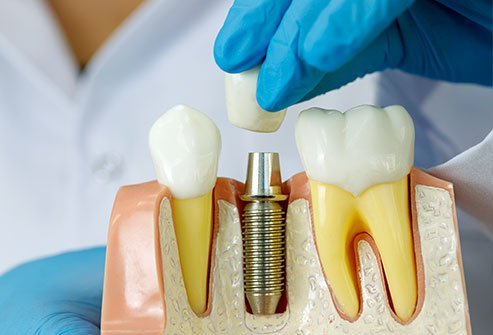If you are missing teeth, dental implants are a great solution. These custom-made devices are made to replicate the look and feel of your natural teeth. While they are permanent, they can be customized to your specific needs. You can even choose the size and shape of your implant. Read on to learn more about the pros and cons of dental implants. Aside from restoring your smile, dental implants can also prevent bone deterioration and other problems associated with missing teeth.
Unlike dentures, dental implants are permanent replacements for missing teeth. The post replaces the root of the missing tooth, which stimulates the bone and supports a single crown, several missing teeth, or a bridge. These implants can last a lifetime, and are a popular option for people who have experienced tooth loss. And they are successful in replacing more than 98% of patients. So what are the benefits of dental implants? These prosthetic teeth can be a great solution to a wide range of dental problems.
The main benefit of dental implants is their natural-looking appearance. Although dental implants may be difficult to remove, they provide a lifetime of improvements to your oral health. Depending on your goals and the number of implants you’ll need, you may wish to seek the advice of an oral surgeon. A qualified implantologist can ensure your success by using the most advanced techniques in the field. The best way to find a qualified practitioner is to ask around and read patient testimonials on dental implant sites. Check out different post to double check our dental services advises.
While dental implants are a great solution for many dental problems, there is a risk of failure. There are several reasons why dental implants fail. Poor oral hygiene, improper placement, traumatic facial injury, smoking, and jaw tissue degeneration can all contribute to implant failure. If you want to minimize the risks of dental implant failure, you should follow all instructions given by your dentist and follow the aftercare instructions carefully. The best way to minimize the chance of implant failure is to maintain good oral hygiene. It’s also helpful to visit an implantologist regularly.
A dental implant is not for everyone. You must be healthy and have sufficient bone to support the implant. You will need to have enough bone in your jaw to have the procedure done. In some cases, it will be necessary to have bone grafts before the process. However, most dental implants require minimal bone grafting. This is a relatively simple procedure and should only take 3 to 6 months. This is one of the most common options for replacing missing teeth and will improve your smile dramatically. Some often wonder what is an all on 4 ? Wikipedia answers easily the question.
While the process for dental implants is straightforward, it is not without risk. The doctor will first drill a small hole in the jawbone and then attach a titanium post. This titanium post will function as the tooth’s root. The crown will not be attached for 3 to six months, but it will take about three to six months for the jawbone to heal. Once the surgery is complete, your teeth will look as good as ever! But the downside is that dental implants are not for everyone.
A dental implant is a screw-like device that attaches to your jawbone. It is made of titanium or other material and is safe for the gum tissue and the jawbone to attach to. Because the implant is beneath the gum tissue, it is barely noticeable. The crown will be attached to the implant in three to six months. The treatment will last for several years. If you take care of your dental implants, you should be able to smile with confidence.
In addition to improving your smile, dental implants can improve your overall health and well-being. Unfortunately, there are complications associated with dental implants that can occur immediately after the procedure and even later. Some of these complications may lead to implant failure, which will cause you to need another surgical procedure. The implant is also prone to distorting images. The FDA does not know about any adverse events with dental implants, but it recommends that you follow the instructions carefully.
While dental implants can be permanent, there are risks involved. They can be irreversible. If you have a damaged tooth, your implant may not be able to support the new tooth. If your dentist believes that your implant is not secure, they will need to perform a surgical procedure to remove it. A dental implant is a long-term solution, but it is not without risks. It is important to follow the instructions of your dentist, as it will help the healing process.
